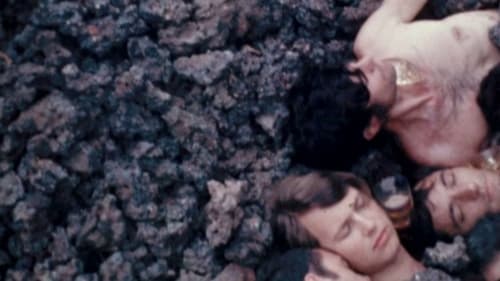Alfredo Leonardi
Nascimento : 1938-09-07, Voghera, Lombardy, Italy

Director

Director

Director

Director

Director

Director

Director

Director
Documentary about life in Italian working class neighborhoods.

Director
Documentary, Short, underground film

Director

Director
On the occasion of the regional elections of 1970, the Italian Communist Party seizes a new model of propaganda and counter-information developed in France during May 68: the cine-tract.

"The question is, it is either going to be a stoned age or a new Stone Age" - Louis Brigante

Director

Director
A film by Alfredo Leonardi.

Director
The film documents the wave of house occupations in Rome at the end of the 60s: the working-class residents of the borgate, left-wing priest Don Lutte, the tenants’ committee, who were in the orbit of the Communist Party, and the Comitato di Agitazione Borgate […].

In the distant future, a spaceship inhabited by a group of young descendants of a "subversive" minority who escaped the destruction of the Earth, recovers a capsule in which the hibernating body of a reactionary warmonger has been preserved, who after having caused war and death, it has abandoned the now unlivable Earth. The visual experimentation aimed at the liberation of the gaze is intertwined with psychedelic visions on the one hand and with the orgone theory of Reichian memory on the other.

Director of Photography
In all of his work, Bussotti makes frequent reference to the body, to sexuality. This to remind musicians — especially classically trained ones — that they are not body-less angels, that they are not just their musical thoughts, that they are still, in the last analysis, flesh and bones. Thus the erotic is not for shocking, but to stress that making music involves the body in a very direct way.

Director
16mm collective manifesto by the members of C.C.I.

Himself
Dedicated to Dieter Meier. voice-over by Gregory Markopoulos, reading an excerpt in English translation of Paul Valéry’s L’Homme et la nuit (Man and the Night).

Writer
A (temporary) leave of many friends who are my truest world, with the attempt of getting them together in an ideal summary conceived to support me during my being far away. –A. L.

Director
A (temporary) leave of many friends who are my truest world, with the attempt of getting them together in an ideal summary conceived to support me during my being far away. –A. L.

Director
A piece of reality, a roman square, observed in a way to achieve a more intense self-perception. –A. L.

Editor

Director of Photography

Director

Director
The faces of beauty are infinite, if you only want to look at them, and the ones of infancy are the most divine. –A. L.

Director
In this film, as in all my previous ones, there is a direct connection between inner urges and cinematic rendering. I tried to visualize my present aspiration to recover, through the various ways taught by one’s experience, the easiness, directness and ripeness proper to children’s relationships and affective life. This film is maybe a track of this path backwards. – A. L.

Director
A film by Alfredo Leonardi.

Director
Work and life of Musica Elettronica Viva, group of live electronic music, mainly composed by American musicians, active in Rome, Italy. –A. L.

Assistant Director
Motion Vision was originally screened in alternation with slides as part of the rotating installation Rotor Vision, in Rome in 1967 for the seminal group show at L’Attico entitled Fuoco, Immagine, Acqua, Terra with the participation of Mario Bignardi, Mario Ceroli, Piero Gilardi, Jannis Kounellis, Pino Pascali and Michelangelo Pistoletto. In Motion Vision Bignardi constructs a curious repertoire of animal profiles drawn in colour on paper, alternated with pop icons and a sequence of everyday gestures: from the tying of neckties the film passes to walking nude figures in slow motion, alluding to Muybridge and his chronophotography. —Tate Modern

Director of Photography
Leonardi's film about the Living Theatre is less concerned with a straight documentary presentation of the exile theatre group from New York, but rather is concerned with the specific atmospheric factor which is indicated by their name, and which constitutes the highly suggestive effect of their playing. Cutting, for Leonardi, is the most decisive aesthetic device. The result is a wonderfully composed furioso of pictures. The hand-held camera catches rehearsals, conversations without sound, bits of theatre and daily life actions (which, for Living Theatre people, is very often intermixed).

Editor
Leonardi's film about the Living Theatre is less concerned with a straight documentary presentation of the exile theatre group from New York, but rather is concerned with the specific atmospheric factor which is indicated by their name, and which constitutes the highly suggestive effect of their playing. Cutting, for Leonardi, is the most decisive aesthetic device. The result is a wonderfully composed furioso of pictures. The hand-held camera catches rehearsals, conversations without sound, bits of theatre and daily life actions (which, for Living Theatre people, is very often intermixed).

Director
Leonardi's film about the Living Theatre is less concerned with a straight documentary presentation of the exile theatre group from New York, but rather is concerned with the specific atmospheric factor which is indicated by their name, and which constitutes the highly suggestive effect of their playing. Cutting, for Leonardi, is the most decisive aesthetic device. The result is a wonderfully composed furioso of pictures. The hand-held camera catches rehearsals, conversations without sound, bits of theatre and daily life actions (which, for Living Theatre people, is very often intermixed).














